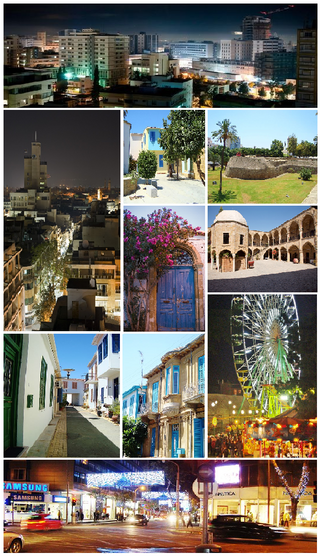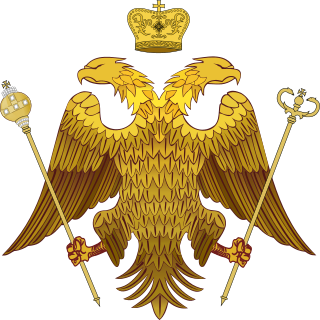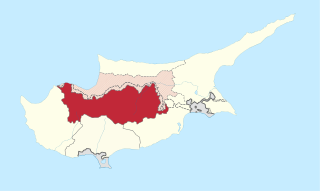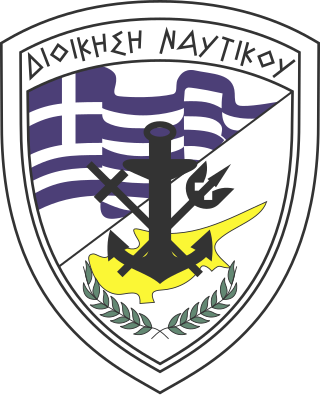Y
| | This section is empty. You can help by adding to it. (July 2010) |
This page list topics related to Cyprus.
| | This section is empty. You can help by adding to it. (July 2010) |

The Republic of Cyprus is a unitary presidential representative republic, whereby the President of Cyprus is both head of state and head of government. Executive power is exercised by the government. Legislative power is vested in both the government and the parliament. The Judiciary is independent of the executive and the legislature.

Nicosia is the capital and largest city of Cyprus. It is located near the centre of the Mesaoria plain, on the banks of the River Pedieos.

The Church of Cyprus is one of the autocephalous Greek Orthodox churches that together with other Eastern Orthodox churches form the communion of the Eastern Orthodox Church. It is one of the oldest Eastern Orthodox autocephalous churches; it claims to have always been independent, although it may have been subject to the Church of Antioch before its autocephaly was recognized in 431 at the Council of Ephesus. The bishop of the ancient capital, Salamis was constituted metropolitan by Emperor Zeno, with the title archbishop.
Agios Nikolaos is the Greek name of St Nicholas. As a place name, it may refer to:
Agios Georgios may refer to the following places:

Georgios Grivas, also known by his nickname Digenis, was the Cypriot founder and leader of the Greek and Greek Cypriot paramilitary organisations Organization X (1942-1949), EOKA (1955-1959) and EOKA B (1971-1974).

Cyprus Postal Services, or Cyprus Post, is the postal operator of Cyprus and operates the government-operated Post Office. A legacy of British colonial rule is the use of pillar boxes with the initials of the British monarch, although after independence they were painted yellow.

Kyrenia District is one of the six districts of Cyprus. Its main town is Kyrenia. It is the smallest of Cyprus' districts, and is the only one controlled in its entirety by the unrecognised de facto state of Northern Cyprus, where the same territory is administered as the de facto Girne District, a distinct entity.

Nicosia District is one of the six districts of Cyprus. Its main town is the island country's capital city, Nicosia. The de-facto TRNC-controlled northern part of the district is the Lefkoşa District of the unrecognized Turkish Republic of Northern Cyprus.
This is a timeline of events of the 1974 Cypriot coup d'état and the responding Turkish invasion of Cyprus from 15 July to 16 August 1974.

In 1974, Turkey invaded the northern portion of the Republic of Cyprus in response to a military coup taking place on the island, in attempt to annex the island to Greece. Turkey claimed that this was an intervention in accordance to Treaty of Guarantee. The invasion consisted of two major Turkish offensives, and involved air, land and sea combat operations. The Greek Cypriot armed forces attempted to resist and respond to the attacks as part of a coordinated defence plan which proved inadequate to deal with the forces that Turkey was able to bring to bear, and the war resulted in a ceasefire which persists until the present day.

Armenians in Cyprus or Armenian-Cypriots are ethnic Armenians who live in Cyprus. They are a recognized minority with their own language, schools and churches. Despite the relatively small number of Armenians living in Cyprus, the Armenian-Cypriot community has had a significant impact upon the Armenian diaspora and Armenian people. During the Middle Ages, Cyprus had an extensive connection with the Armenian Kingdom of Cilicia, while the Ganchvor monastery had an important presence in Famagusta. During the Ottoman Era, the Virgin Mary church and the Magaravank were very prominent. Certain Armenian-Cypriots were or are very prominent on a Panarmenian or international level and the fact that, for nearly half a century, the survivors of the Armenian genocide have co-operated and co-existed peacefully with the Turkish-Cypriots is perhaps a unique phenomenon across the Armenian Diaspora. The emigration of a large number of Armenian-Cypriots to the United Kingdom has virtually shaped today's British-Armenian community.

The Cyprus Naval Command is the armed sea wing of the Cyprus National Guard. The Cypriot Navy has the primary mission of defending the maritime borders of the Republic of Cyprus, but is currently unable to access the waters around Northern Cyprus, which have been controlled by the Turkish Navy since the 1974 Turkish invasion of Cyprus. This force does not possess any capital ships or other major warships, but is equipped with patrol boats, landing craft, surface-to-surface missile systems and integrated radar systems, as well as SEALs-type naval underwater demolitions units.

Parliamentary elections were held in Cyprus in 1960. The House of Representatives was elected on 31 July 1960. The Communal Chambers were also elected on 7 August. In the House of Representatives 35 seats were elected by Greek Cypriots and 15 by Turkish Cypriots. The result was a victory for the Patriotic Front, which won 30 of the 50 seats. In the Communal Chambers, the Patriotic Front won the majority of seats in the Greek Chamber, whilst the Cyprus Turkish National Union won all seats in the Turkish Chamber.
Armenians have a long history in Cyprus, with the first confirmed presence of Armenians on the island dating back to 578 AD, during the reign of Byzantine Emperor Justin II. In the modern Republic of Cyprus, they are recognized as one of the three minority "religious groups" along with the Maronites and Latins.

Christianity in Cyprus is the largest religion in the country, making up 78% of the island's population. The largest Christian denomination is the Greek Orthodox Church, while the rest are smaller communities of Anglicans, Roman Catholics, Latin Christians, Maronites, Armenian Apostolics, and Greek Evangelicals.

Legislative elections were held in Cyprus on 6, 7 and 8 June 1883. They were the first elections to the newly established Legislative Council.

Legislative elections were held in Cyprus on 1 November 1886.